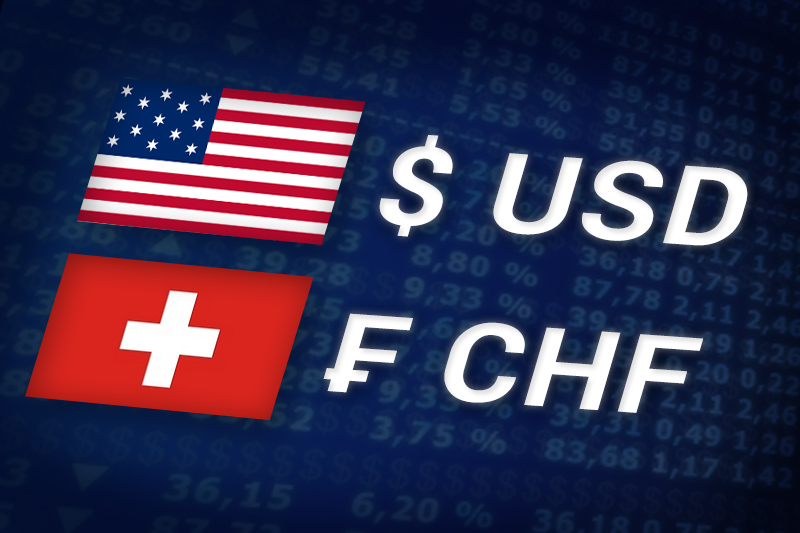Investing.com - The U.S. dollar slipped lower against the Swiss franc on Monday, as fears over a Greek exit from the euro zone subsided after a Greek opinion poll showed increased support for a pro-bailout party ahead of next month’s elections.
USD/CHF hit 0.9529 during European morning trade, the pair’s lowest since May 23; the pair subsequently consolidated at 0.9554, shedding 0.44%.
The pair was likely to find support at 0.9463, the low of May 23 and resistance at 0.9570, the session high.
Investor sentiment strengthened after an opinion poll indicated that Greek conservative party New Democracy may be able to form a government following the June 17 elections, after inconclusive election earlier this month sparked fears that the country could be forced out of the euro area.
But the dollar’s losses were limited amid uncertainty over the outcome of the June elections, while fears over the health of Spain’s banking sector and the country’s rising borrowing costs also weighed.
Spain’s government announced Sunday that it was to recapitalize one of the country’s largest commercial lenders, fuelling fresh fears that the rising cost of bank rescues could force Madrid into seeking an international bailout.
Earlier Monday, Spain’s Treasury auctioned the full targeted amount of EUR3.5 billion of two-year bonds, but the yield climbed to 4.03%, up sharply from 3.35% at a similar auction in April.
Meanwhile, the yield on Spanish 10-year government bonds climbed to 6.50% on Monday, up from 6.34% on Friday.
Trade looked likely to remain quiet on Monday, with some markets in Europe closed for holidays, while markets in the U.S. were to remain closed for the Memorial Day holiday.
The Swissie was slightly weaker against the euro, with EUR/CHF edging up 0.09% to hit 1.2021.
Over the weekend, Swiss National Bank Chairman Thomas Jordan said the central bank was looking drawing up contingency measures to deal with a possible collapse of the euro zone, but added that the SNB believes such a scenario is highly unlikely.
USD/CHF hit 0.9529 during European morning trade, the pair’s lowest since May 23; the pair subsequently consolidated at 0.9554, shedding 0.44%.
The pair was likely to find support at 0.9463, the low of May 23 and resistance at 0.9570, the session high.
Investor sentiment strengthened after an opinion poll indicated that Greek conservative party New Democracy may be able to form a government following the June 17 elections, after inconclusive election earlier this month sparked fears that the country could be forced out of the euro area.
But the dollar’s losses were limited amid uncertainty over the outcome of the June elections, while fears over the health of Spain’s banking sector and the country’s rising borrowing costs also weighed.
Spain’s government announced Sunday that it was to recapitalize one of the country’s largest commercial lenders, fuelling fresh fears that the rising cost of bank rescues could force Madrid into seeking an international bailout.
Earlier Monday, Spain’s Treasury auctioned the full targeted amount of EUR3.5 billion of two-year bonds, but the yield climbed to 4.03%, up sharply from 3.35% at a similar auction in April.
Meanwhile, the yield on Spanish 10-year government bonds climbed to 6.50% on Monday, up from 6.34% on Friday.
Trade looked likely to remain quiet on Monday, with some markets in Europe closed for holidays, while markets in the U.S. were to remain closed for the Memorial Day holiday.
The Swissie was slightly weaker against the euro, with EUR/CHF edging up 0.09% to hit 1.2021.
Over the weekend, Swiss National Bank Chairman Thomas Jordan said the central bank was looking drawing up contingency measures to deal with a possible collapse of the euro zone, but added that the SNB believes such a scenario is highly unlikely.
